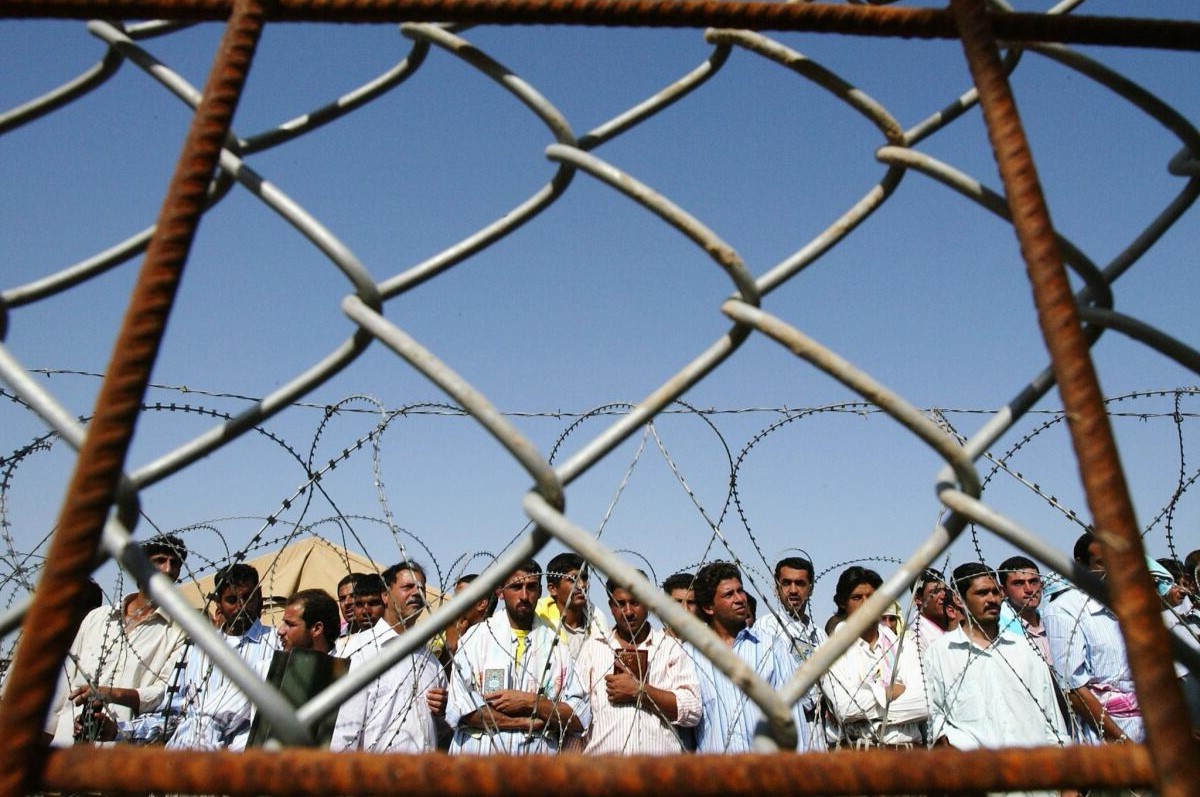
Abu Ghraibgate shocked the world with its revelations of prisoner abuse at the Abu Ghraib prison in Iraq. This scandal, which came to light in 2004, involved U.S. military personnel mistreating detainees, leading to widespread outrage and condemnation. Photos and reports of the abuse highlighted severe human rights violations, including physical and psychological torture. The scandal not only tarnished the reputation of the U.S. military but also raised serious questions about the treatment of prisoners and the ethical conduct of soldiers. Understanding the key facts about Abu Ghraibgate is crucial to grasp the full impact of this dark chapter in modern history.
What is Abu Ghraibgate?
Abu Ghraibgate refers to the scandal involving the abuse and torture of prisoners by U.S. military personnel at Abu Ghraib prison in Iraq. This scandal shocked the world and raised serious questions about human rights and military conduct.
-
Abu Ghraib Prison: Originally built in the 1950s, Abu Ghraib was one of the largest and most notorious prisons in Iraq. It housed thousands of inmates, including political prisoners during Saddam Hussein's regime.
-
Discovery of Abuse: The scandal came to light in early 2004 when CBS News aired photographs showing U.S. soldiers abusing detainees. These images included prisoners being physically and sexually abused, humiliated, and tortured.
Key Figures Involved
Several individuals played significant roles in the events at Abu Ghraib. Understanding who they were helps to grasp the full scope of the scandal.
-
Lynndie England: A U.S. Army Reserve soldier, England became infamous for her role in the abuse. Photographs showed her posing with detainees in degrading positions, leading to her conviction and imprisonment.
-
Charles Graner: Another key figure, Graner was a U.S. Army Reserve specialist who was seen in many of the abuse photos. He was considered the ringleader and received a ten-year prison sentence.
-
Janis Karpinski: Brigadier General Karpinski was the commander of the 800th Military Police Brigade, which oversaw Abu Ghraib. She was demoted for her lack of oversight and failure to prevent the abuse.
Impact on Military Policy
The Abu Ghraib scandal had far-reaching consequences on military policies and practices. It led to changes aimed at preventing such abuses in the future.
-
Detainee Treatment Act: In response to the scandal, the U.S. Congress passed the Detainee Treatment Act in 2005. This law aimed to ensure humane treatment of prisoners and prohibited cruel, inhuman, or degrading treatment.
-
Military Training Reforms: The U.S. military implemented new training programs focused on the ethical treatment of detainees. These reforms emphasized the importance of adhering to the Geneva Conventions and other international laws.
Global Reactions
The world reacted strongly to the revelations of abuse at Abu Ghraib. The scandal damaged the reputation of the United States and sparked widespread condemnation.
-
International Outcry: Governments, human rights organizations, and the general public around the world condemned the actions of the U.S. military personnel involved in the abuse. The scandal was seen as a violation of human rights and international law.
-
Impact on U.S. Image: The Abu Ghraib scandal severely tarnished the image of the United States. It undermined the country's moral authority and credibility, particularly in the context of promoting democracy and human rights.
Legal Consequences
The legal ramifications of Abu Ghraibgate were significant, with several individuals facing charges and convictions for their roles in the abuse.
-
Court-Martials: Numerous soldiers were court-martialed for their involvement in the abuse. These military trials resulted in convictions and varying sentences, including imprisonment and dishonorable discharges.
-
Civil Lawsuits: Some detainees and their families filed civil lawsuits against the U.S. government and private contractors involved in the abuse. These lawsuits sought compensation for the physical and psychological harm suffered by the victims.
Long-Term Effects
The Abu Ghraib scandal had lasting effects on both the U.S. military and the broader international community. It highlighted the need for greater accountability and transparency in military operations.
-
Policy Changes: The scandal prompted the U.S. Department of Defense to review and revise its policies on detainee treatment. These changes aimed to prevent future abuses and ensure compliance with international standards.
-
Increased Oversight: The U.S. Congress and other oversight bodies increased their scrutiny of military operations and detention practices. This heightened oversight aimed to prevent similar scandals from occurring in the future.
-
Cultural Impact: Abu Ghraibgate left a lasting mark on popular culture, inspiring books, documentaries, and films that explored the scandal and its implications. These works contributed to ongoing discussions about human rights and military ethics.
-
Human Rights Advocacy: The scandal galvanized human rights advocates and organizations to push for stronger protections for detainees. It underscored the importance of holding governments and military personnel accountable for their actions.
Final Thoughts on Abu Ghraibgate
Abu Ghraibgate remains a dark chapter in recent history. The scandal exposed severe human rights abuses, leading to global outrage and significant changes in military policies. Photos and reports from the prison highlighted the need for accountability and transparency within military operations. The fallout from the scandal led to several convictions and reforms aimed at preventing such abuses in the future.
Understanding Abu Ghraibgate is crucial for grasping the complexities of war, ethics, and human rights. It serves as a stark reminder of the importance of oversight and the potential consequences of unchecked power. The lessons learned from this incident continue to influence military conduct and international relations today. By reflecting on these events, we can better appreciate the ongoing efforts to uphold justice and human dignity in conflict zones.
Was this page helpful?
Our commitment to delivering trustworthy and engaging content is at the heart of what we do. Each fact on our site is contributed by real users like you, bringing a wealth of diverse insights and information. To ensure the highest standards of accuracy and reliability, our dedicated editors meticulously review each submission. This process guarantees that the facts we share are not only fascinating but also credible. Trust in our commitment to quality and authenticity as you explore and learn with us.


